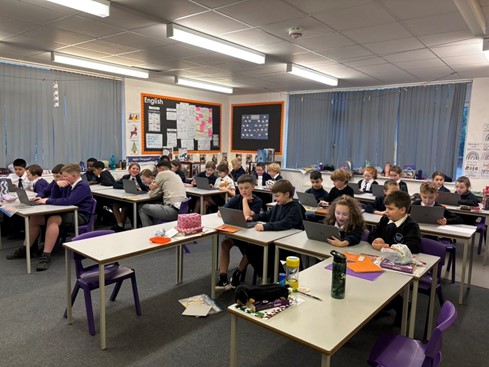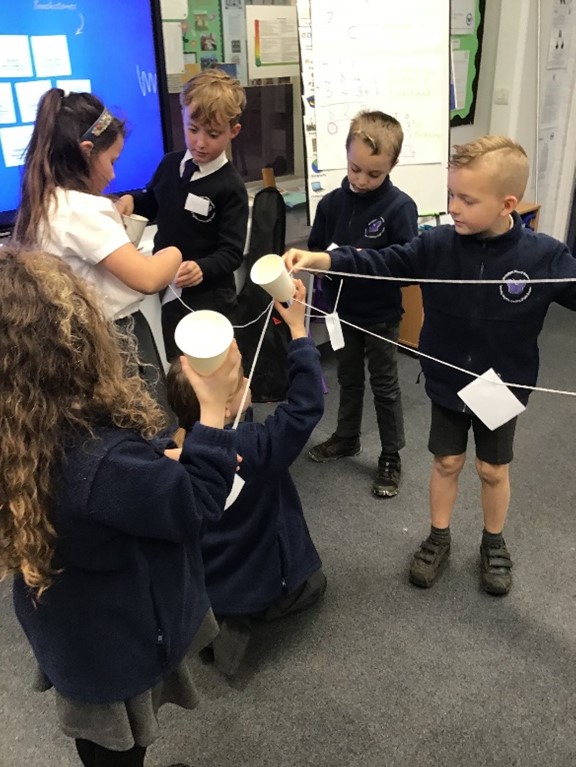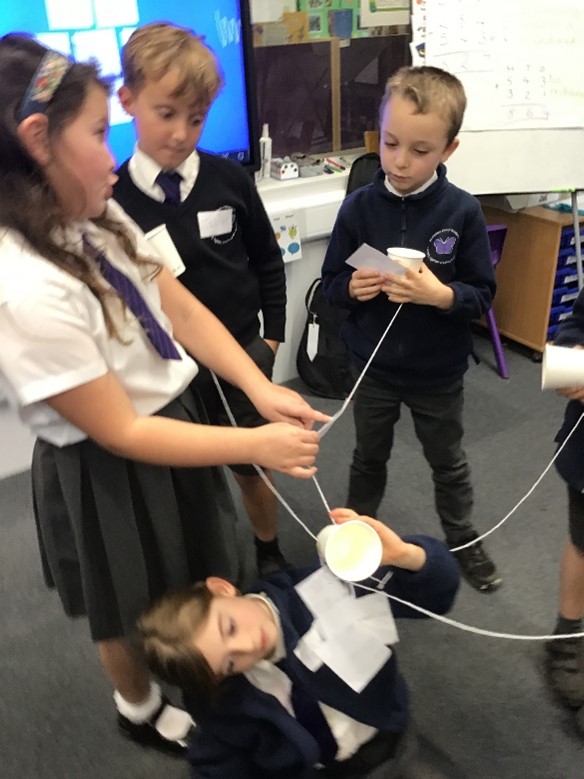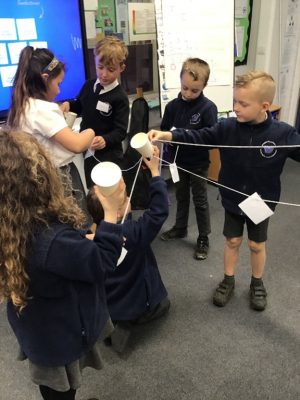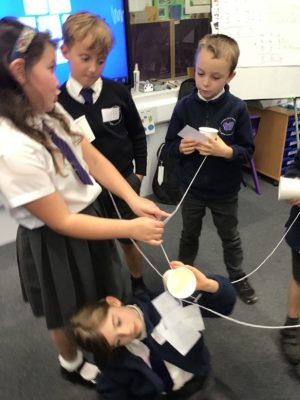 Mr Thorpe
Mr Thorpe
Computing Subject Lead
At Martlesham Primary Academy (MPA), the computing curriculum prepares pupils for the challenges and opportunities offered by a world where work and leisure activities are rapidly being transformed by technological change. We use a scheme called ‘iCompute’.
Intent
iCompute supports schools in teaching computing effectively and well by providing a rich, broad and balanced computing curriculum fully mapped to the National Curriculum for Computing and Key Stage 1 and 2. At MPA, we offer a computing education designed for mastery using research-led computing pedagogies and covers all three strands of the computing curriculum:
- Computing Science
- Information Technology
- Digital Literacy (incl. eSafety)
A positive teacher mindset and strong subject knowledge is key to student success in computing. iCompute aims to enhance pupils’ enjoyment, resilience, understanding and attainment in computing by empowering and equipping schools to deliver a quality computing education with comprehensive computing schemes of work that are designed for computing mastery.
Mastery in computing means acquiring a deep, long-term, secure and adaptable understanding of the subject. It is demonstrated by how skilfully a child can apply their learning in computing to new situations in unfamiliar contexts.
Every child can enjoy and succeed in computing when offered appropriate learning opportunities. iCompute uses growth mindset and problem-solving approaches that enable pupils to develop resilience, persistence and confidence. All children are encouraged to believe in their ability to master computing and are empowered to succeed through curiosity, tinkering and perseverance.
At MPA, pupils are taught through whole-class interactive teaching with pupils working together on the same lesson content at the same time. Lessons are sequenced so that concepts are developed in logical steps with particular attention given to fundamental concepts. This ensures that all children can master concepts before moving to the next stage, with no pupil left behind.
Curriculum equity is offered with all pupils given the time and opportunity to fully understand, explore and apply skills and ideas in difference ways, in different situations and in different subjects. This enables pupils to fully grasp a concept and understand the relevance of their learning.
Implementation
At MPA, our subject leader is supported by iCompute with a Subject Leader’s Toolkit offering guidance on curriculum design, research-led pedagogies for the teaching of computing and how to develop effective subject leadership.
iCompute offers expertise in primary computing education and has the knowledge and practical skills to design primary computing curricula. It supports schools around the world in implementing computing curricula fully matched to the National Curriculum.
iCompute supports schools to develop computing by providing detailed guidance and a range of tools that enable subject leaders to audit and evaluate computing subject knowledge and skills of staff throughout the school. It also provides resources to help improve subject leadership and action planning for improving teaching and learning in Computing in line with centrally prescribed aims; which includes identifying CPD needs.
iCompute supports schools to secure progression and attainment through curriculum resources that include a comprehensive assessment toolkit with guidance about how to assess computing, evidence pupil progression and record data. This includes:
Computing knowledge and skills are carefully mapped out and sequenced so that they are built on year by year to enable learning to become more specific, complex, and in-depth. For example, children in KS1 learn what algorithms are, which leads them to the design stage of programming in KS2. In KS2, they use their prior knowledge to go on to design, create and debug programmes and logically explain their thinking behind their algorithms.
Computing is taught either through stand-alone lessons or, where possible, it is richly linked to engaging contexts in other subjects or topics so that pupils can apply their computing knowledge and skills.
Children are given opportunities to work with a range of hardware devices and software resources and programs, for a variety of purposes, across the curriculum as well as in discrete computing lessons.
At MPA, we are committed to developing digital wisdom in our pupils in order to prepare them for life in an increasingly digital world. Therefore, a strong focus is placed on how to use technology safely and responsibly through the teaching of digital skills, of how technology is used and of how pupils can apply the use of technology in contexts that they can relate to.
Impact
At Martlesham Primary Academy, we are continually assessing our pupils and recording their progress. We see assessment as an integral part of the teaching process and aim to make our assessment purposeful, allowing us to adapt learning to the needs to the pupils, thus benefiting the pupils and ensuring progress. iCompute’s curriculum is designed to build on prior learning and lessons are sequenced throughout the primary phase for progression where all learning builds towards clearly defined end points. The expectation is that the majority of pupils will move through the programmes of study at broadly the same pace. However, decisions about when to progress should always be based on the security of pupils’ understanding and the readiness to progress to the next stage. Pupils who grasp concepts rapidly should be challenged through being offered rich and sophisticated problems before any acceleration through new content. Those who are not sufficiently fluent with earlier material should consolidate their understanding, including through additional practice, before moving on.
The curriculum offers equity for all groups and it is intended that all pupils access it. By following and monitoring the curriculum and its delivery, leaders’ are supported by iCompute in ensuring that all teachers teach the full range of lessons for each year group and that they are taught in accordance with the planning to ensure rigour, challenge and inclusion.
Wider and Extra Curricular Opportunities
-At MPA, we have ‘E-Safety Champions’ who help ensure all children at MPA use the internet safely. The E-Safety Champions meet half termly and help lead E-Safety Cafés. The E-Safety Café will typically be after a half term break, when children would likely spend increased time online, and it is an opportunity for the children to discuss any concerns and learn more about keeping safe online.
-Coding Club takes place once a week for children in Key Stage 2 with a STEM Ambassador. The children have the opportunity to program in different ways, including Scratch, micro:bits and Python.
Computing Documents
Computing Coverage and Progression
